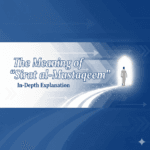Starting With The Name Of Almighty Allah
In the heart of Islamic practice lies a profound commitment to the sacred text of the Quran, preserved not just through written pages but through the living memory of devoted individuals known as Huffaz. This age-old Quran memorization tradition ensures that the divine words remain intact across generations, blending spiritual devotion with meticulous oral transmission. As we delve into the world of Huffaz in Islam, we’ll uncover how the Quran was preserved, the role of Huffaz in Quran preservation, and fascinating memorization of the Quran facts that highlight this enduring legacy.
Understanding Who the Huffaz Are
At the core of this tradition are the Huffaz, individuals who have committed the entire Quran to memory. But what is a Hafiz exactly? A Hafiz, or Hafiza for women, is someone who has memorized all 114 chapters, or surahs, of the Quran, totaling over 6,000 verses. This achievement is not merely an intellectual feat but a spiritual milestone, often beginning in childhood and requiring years of disciplined study.
The term “Hafiz” comes from the Arabic root meaning “to guard” or “to preserve,” reflecting their pivotal role in safeguarding the Quran’s integrity. Who are the Huffaz in today’s world? They come from diverse backgrounds—scholars, everyday believers, and even young students—who dedicate themselves to this practice as an act of worship.
Before diving deeper into how the Quran was memorized, it’s important to understand “What is the Quran? What are the major themes in the Quran?” to appreciate why preserving it holds such immense value.
In many Muslim communities, becoming a Hafiz is celebrated with great honor, symbolizing a deep connection to the faith.
“Indeed, it is We who sent down the Qur’an and indeed, We will be its guardian.”
(Quran 15:9)
This verse underscores the divine promise of preservation, which Huffaz embody through their memorization efforts.
The Historical Roots of Quran Memorization
Quran memorization history traces back to the time of Prophet Muhammad (peace be upon him), when the Quran was revealed orally over 23 years. In an era with limited literacy, memorization served as the primary means of transmission. The Prophet himself encouraged companions to commit verses to memory, ensuring accuracy as revelations came in stages. Understanding Why Was The Quran Revealed In Stages? Timeline of the Quranic Revelation also helps clarify how memorization developed alongside revelation over time.
During the Prophet’s lifetime, key figures like Ubayy ibn Ka’b and Zaid ibn Thabit became early Huffaz, memorizing and reciting the text verbatim. After the Prophet’s passing, the need for Quran oral preservation intensified amid battles and the loss of memorizers. This led to the compilation under Caliph Abu Bakr, where written records complemented the memorized versions.
To explore this crucial phase further, you can learn from the blog, “When was the Quran Published? Who Compiled the Quran into A Book?” to see how oral and written preservation came together.
From a historical and academic perspective, scholars note that while oral tradition was central, written fragments on materials like bones and leaves existed early on. Traditional Islamic belief holds that divine protection ensured no alterations, whereas academic approaches often examine textual variants in early manuscripts to understand transmission dynamics. Both views agree on the remarkable consistency of the Quran over centuries.
“The Prophet (ﷺ) said, ‘The best amongst you is the one who learns the Qur’an and teaches it.'”
(Sahih al-Bukhari 5027)
This hadith highlights the emphasis placed on learning and memorizing from the outset.
Historical context also reveals insights into Who Wrote the Quran and When Was The Quran Written? — a topic closely linked to the early efforts of memorization and preservation.
How the Quran Was Preserved Through Oral Tradition
The preservation of Quran through memorization stands as one of the most remarkable aspects of Islamic heritage. How the Quran was preserved involved a dual system: oral recitation by Huffaz and written codices. During Caliph Uthman’s reign, standardized copies were distributed to prevent dialectal differences, but memorization remained the backbone. A pivotal part of this history is The Role of Caliph Uthman in Standardising the Qur’an, which marked a turning point in unifying recitations and preserving accuracy.
Quran oral preservation relied on chains of transmission, or isnad, where teachers verified students’ recitations against their own memorized versions. This method minimized errors, as any deviation would be immediately corrected. In contrast to purely written texts, which could be altered or lost, memorization provided a living safeguard. Alongside the Huffaz, the article, Who Were the Scribes of the Quran? Exploring the Scribes of Divine Revelation, sheds light on those entrusted with recording divine revelations in writing.
Academic historians point to parallels in other ancient oral traditions, like Vedic hymns, suggesting that rhythmic structure and repetition aided accuracy. Traditional beliefs, however, attribute the flawless preservation to divine intervention, with Huffaz as human instruments.
To deepen your understanding of proper recitation, which is essential for accurate memorization, consider exploring techniques in articulation.
If you’re looking to enhance your skills through structured guidance, enrolling in Online Classes of Quran can provide personalized support from experienced tutors.
The Role of Huffaz in Safeguarding the Quran
The role of Huffaz in Quran preservation cannot be overstated—they are the living repositories of the sacred text. In times of crisis, such as invasions or natural disasters that destroyed manuscripts, Huffaz ensured the Quran’s survival. For instance, during the Mongol invasions, memorized knowledge allowed for the swift reconstruction of lost copies.
Today, Huffaz lead prayers in mosques, teach new generations, and participate in global competitions that celebrate this skill. Their memorization upholds the Quran’s authenticity, as collective recall across millions prevents widespread changes. For a more detailed look at this process, see “How Was the Qur’an Preserved? The Story of the Qur’an’s Compilation into a Single Book” provides deeper insight into the divine and historical methods of safeguarding.
From an academic lens, the sheer number of Huffaz contributes to textual stability through redundancy, similar to distributed data systems. Traditional views see this as fulfillment of prophetic promises.
“And We have certainly made the Qur’an easy for remembrance, so is there any who will remember?”
(Quran 54:17)
This verse invites believers to engage in memorization, reinforcing the Huffaz’s role.
Building on pronunciation fundamentals, learning about throat articulation is key for clear recitation.
For flexible learning options tailored to busy schedules, Online Quran Classes make it easier to start your journey.
Why Muslims Memorize the Quran Today
Why Muslims memorize the Quran extends beyond preservation—it’s a path to spiritual growth, discipline, and reward. Memorization fosters a intimate bond with the text, allowing for reflection during prayers and daily life. Many believe it brings blessings, as the Quran becomes part of one’s heart.
In modern contexts, it counters digital distractions, promoting mental focus. Parents encourage children to become Huffaz for character building and cultural continuity.
Academic studies highlight cognitive benefits, like improved memory and linguistic skills, while traditional teachings emphasize eternal rewards.
“The Prophet (ﷺ) said, ‘Whoever recites the Qur’an and learns it by heart, and regards its lawful as lawful and its unlawful as unlawful, Allah will admit him to Paradise and accept his intercession for ten of his family members who were doomed to Hell.'”
(Sunan Ibn Majah 217)
This hadith illustrates the profound incentives for memorization.
If you’re seeking convenient access to expert instruction, Quran Learning Classes offer a supportive environment for all levels.
Methods: How Is the Quran Memorized
How is the Quran memorized involves systematic techniques honed over centuries. Beginners start with short surahs, repeating verses multiple times daily while focusing on tajweed rules for correct pronunciation. Teachers use auditory repetition, writing exercises, and group recitations to reinforce memory.
Advanced methods include “mutun” or linking verses thematically, and regular revision to combat forgetting. Technology now aids with apps, but traditional teacher-student interaction remains irreplaceable.
Historical approaches emphasized understanding meanings alongside rote learning, ensuring deeper retention.
For those preferring virtual setups, Quran Classes Online deliver interactive sessions from home.
The Importance of Quran Memorization in Islam
The importance of Quran memorization lies in its spiritual, communal, and intellectual dimensions. It equips believers to live by Quranic guidance, as memorized verses guide decisions and provide solace. In education, it forms the basis for deeper Islamic studies.
Communally, Huffaz unite Muslims during Ramadan taraweeh prayers, where the entire Quran is recited from memory. This practice strengthens faith and cultural identity.
Academic perspectives view it as a cultural heritage preservation tool, while traditional beliefs see it as obedience to divine command.
“Recite in the name of your Lord who created.”
(Quran 96:1)
This opening verse of revelation emphasizes recitation and memorization.
To integrate proper pronunciation into your routine, Online Quran Academy provides resources and expert-led programs.
Fascinating Memorization of the Quran Facts
Memorization of the Quran facts reveal its global impact. The Quran’s poetic structure, with rhyme and rhythm, facilitates easier recall compared to prose. Remarkably, children as young as five have become Huffaz, showcasing the brain’s adaptability.
Estimates suggest there are millions of Huffaz worldwide, though exact numbers vary. How many Huffaz in the world? While no precise census exists, countries like Pakistan and Indonesia report hundreds of thousands, with global figures potentially exceeding 10 million based on madrasah enrollments and community surveys.
One fact: During Hajj, Huffaz from diverse nations recite together without discrepancies, demonstrating uniformity.
Accessible education platforms like Quran Online Courses can accelerate your progress.
The Quran Memorization Tradition in Modern Times
The Quran memorization tradition thrives amid globalization. Online platforms and international hifz programs make it accessible beyond traditional madrasahs. Women increasingly participate, with many becoming Huffaz and teachers.
Challenges include balancing secular education, but innovations like part-time courses address this. Traditional and academic views both recognize its role in maintaining the linguistic purity of classical Arabic.
For self-paced home study, Quran Online Lessons bring quality teaching to your doorstep.
Balancing Perspectives on Preservation
While traditional Islamic belief affirms the Quran’s perfect preservation through Huffaz and divine will, historical and academic approaches examine evidence like early manuscripts and variant readings (qira’at). Some discussions also highlight the “Misconceptions About the Compilation of the Holy Quran” that often arise when comparing traditional and academic perspectives. These seven accepted recitations add layers without altering core meanings, enriching the tradition. Such consistency explains Why is Quran considered perfectly preserved even with diverse recitations across the Muslim world. Both perspectives appreciate the robustness of oral and written methods, fostering dialogue on authenticity. To understand why Muslims place unwavering trust in the scripture, read How do we know the Quran is authentic? for a deeper exploration of textual and oral consistency.
Specialized programs, such as an online Quran memorization course, focus on hifz techniques. In a world where digital resources abound, the human element of Huffaz remains irreplaceable, bridging past and present.
Final Thoughts:
As you reflect on the timeless practice of Quran memorization, consider how it can enrich your life. At Najam Academy, a leading online Quran academy in the USA and UK with a global reach, we offer the best online Quran education in affordable packages. Our experienced tutors guide students through memorization, tajweed, and more, making spiritual growth accessible to all. Whether you’re a beginner or advancing your skills, join us to experience personalized, high-quality learning that honors this sacred tradition.
Key Citations:
Surah Al-Hijr 15:9
Sahih al-Bukhari 5027
Surah Al-Qamar 54:17
Jami‘ at-Tirmidhi 2905
Surah Al-‘Alaq 96:1




